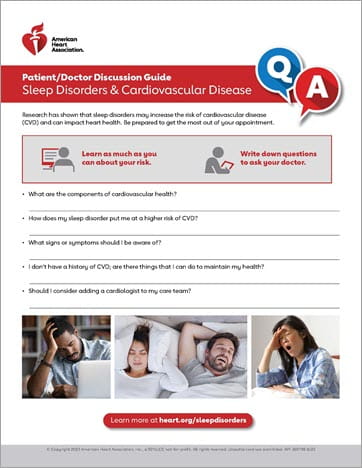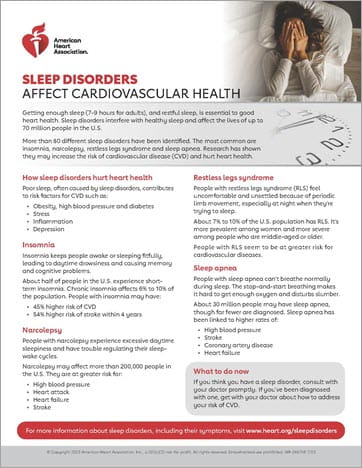Restless Legs Syndrome and Heart Health
What is restless legs syndrome?
Restless legs syndrome (RLS) is a neurological disorder that causes your legs to feel uncomfortable or unsettled. It can feel like there’s a “creeping” sensation in your legs, and you may feel an irresistible urge to move them. RLS makes it difficult to sleep because symptoms are often the worst at night and when you’re trying to rest; it can also wake you up and make it difficult to fall back asleep. There is no cure, but there are treatments available that can help you navigate symptoms.
Symptoms of restless legs syndrome
Symptoms of restless legs syndrome include:
- Irresistible urge to move legs.
- Discomfort in legs (this may include aching, creeping, itching, throbbing, and other painful or uncomfortable sensations).
- Difficulty falling asleep, as symptoms often occur at night or when resting.
- Difficulty staying asleep.
- Fatigue and daytime sleepiness.
- Problems with memory, focus, and concentration.
- Mood swings.
- Depression and anxiety.
How many people are affected by restless legs syndrome?
Roughly 7-10% of the American population has restless legs syndrome. More women than men get RLS, and more severe cases tend to affect adults who are middle-aged or older. RLS can be genetic and run in the family. It can also be linked to low levels of iron in the brain.
How is restless legs syndrome diagnosed and treated?
Talk to your doctor if you think you have restless legs syndrome. There’s no specific test for restless legs syndrome but your doctor will evaluate your symptoms and health to determine whether you have restless legs syndrome. Be prepared to share information about the frequency, nature and intensity of your symptoms.
There is no cure for restless legs syndrome. Some symptoms can be managed through medication and lifestyle changes. Your doctor may also treat another health condition that could be causing your restless legs syndrome, like diabetes or iron deficiency anemia.
View the Patient/Doctor Discussion Guide (PDF)
How is restless legs syndrome linked to cardiovascular disease and brain health?
Restless legs syndrome has been associated with an increased risk of cardiovascular disease, but more research is needed to fully understand and confirm that risk. There’s some evidence that the sleep disturbance, periodic limb movement and increased blood pressure caused by restless legs syndrome can negatively affect cardiovascular health.
View How Sleep Disorders Affect Cardiovascular Health Fact Sheet (PDF)








